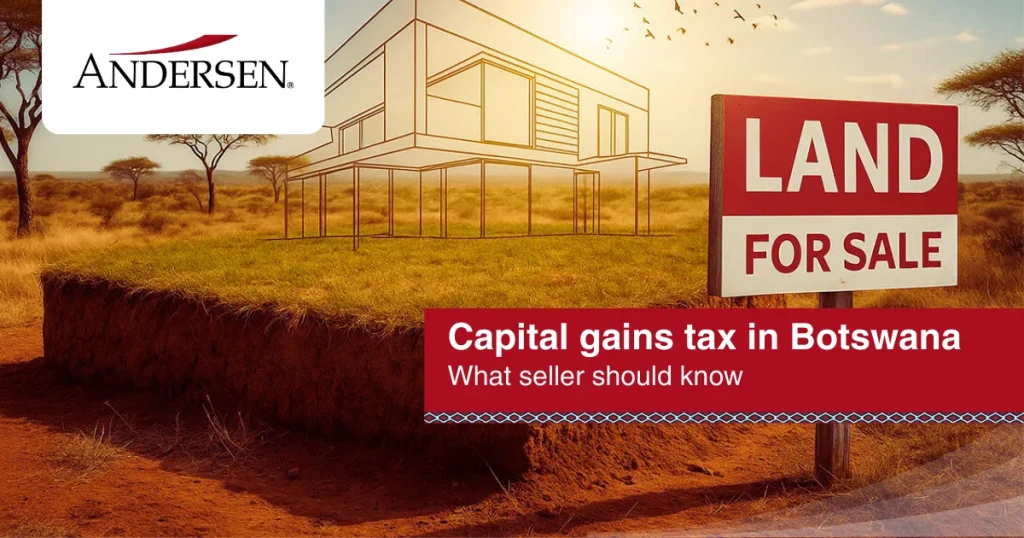– A Simple Guide Based on the Tenth Schedule of the Income Tax Act –
Disposing of land, buildings, shares or any valuable property can have tax consequences, and one of the lesser-known taxes that may apply is Capital Gains Tax. In Botswana, this is addressed under the Tenth Schedule of the Income Tax Act, which explains how these gains are taxed- and more importantly, when they are not.
✅ When You Do Not Pay Capital Gains Tax
You do not pay capital gains tax in several situations. For example, the most common exemption is when you sell your main home, also known as your principal private residence. You will not be taxed on the gain if:
- You reinvest the proceeds in another residential property within 24 months, or
- It is your first time selling your main home and you choose not to reinvest.
There are also several other exemptions available under Botswana tax law- for example, in relation to shares, pensions, or company reorganizations. These are more technical, so we have not listed them all here. If you think one may apply to you, please reach out to us for tailored advice.
💡 How Taxable Capital Gains Are Calculated
If your disposal does not qualify for exemption, then capital gains tax is calculated as:
Capital Gain = Selling Price – Allowable Deductions
⚠️ What If BURS Does Not Accept Your Declared Values?
If BURS believes your reported selling or purchase price is inaccurate, they may override it and apply their own market value based on available evidence.
📌 Final Thoughts
Capital gains tax is not always straightforward — but knowing the basic rules can help you plan wisely and avoid surprises.
Before selling any land, buildings, or shares, speak to a tax adviser to find out:
- Whether you qualify for an exemption
- What supporting documents you will need
- How to minimize your tax through legal deductions

by Nomsa Manele
Section RIC – Tax


Leave a Reply
You must be logged in to post a comment.